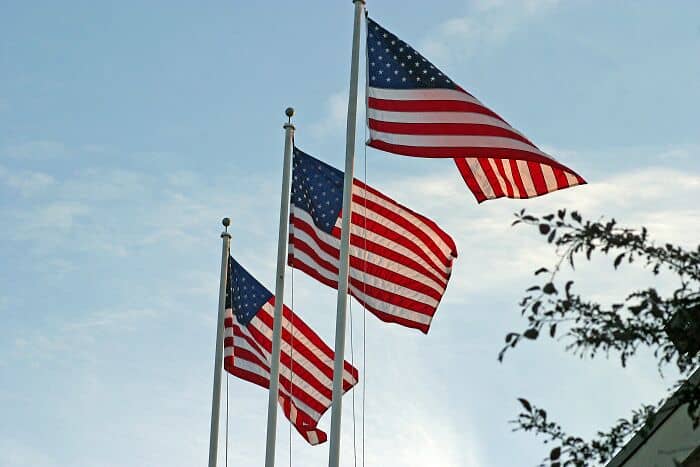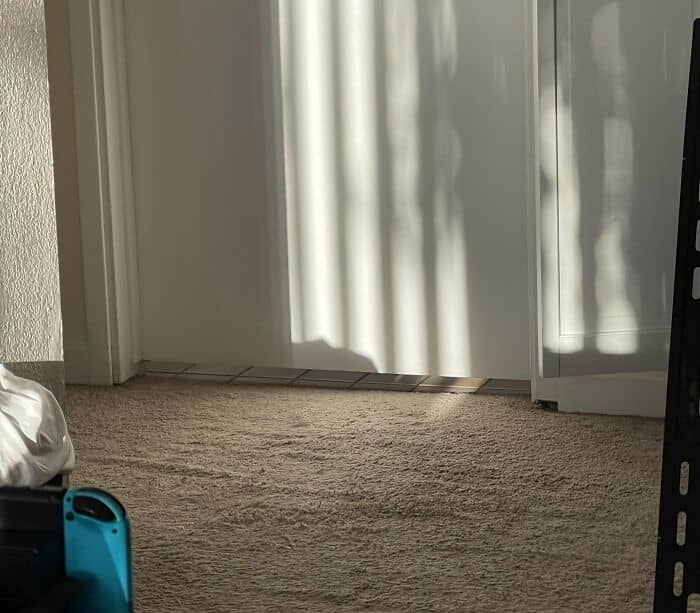Usually, when you grow up in a certain culture, you learn its customs and get accustomed to its lifestyle and all the things. And for a while, when you don’t know any better, it’s normal to assume that the whole world operates the same as your culture.
Then, you learn that sometimes the things you consider to be absolutely normal aren’t normal at all somewhere else. Today, we’ll focus on such revelations that American people had after talking to foreign folks. And let’s just say, these are pretty entertaining examples.
More info: Reddit

#1

Requiring cashiers to stand up.
It seemed normal when I lived in the US, but now that I’m in Spain and see cashiers sitting down I wonder why they can’t in the US.
#2

Employers having to approve sick time. Apparently in other countries, your doctor decides how long you have to take off and you employer just HAS to honor it.
#3

Active shooter drills :/.
If you’re from somewhere else besides the United States of America, throughout your life, you have probably noticed that the world is relatively America-centered. For instance, if you look up the statistics of something, you will often get results about the American population.
Let’s do a quick experiment. We came up with a random question – “How much bread do people eat?” – and added the word “statistics” when Googling it. And guess what? The first thing that popped up was statistics about bread consumption in the United States. To prove our point, you can do a little experiment on your own – maybe you can prove that only our search engine algorithm shows American results first.
#4

Figuring out your taxes. What do you owe? I don’t know. Does the government? Yes. Will they just tell you? No, go figure it out, but if you get it wrong you’re in trouble.
#5

It was in the 1980’s when I went on a one week vacation to Switzerland and realized that most of the world gets more than two week’s vacation per year.
I recall the hotel manager asking me how long my stay would be and I bragged “I’m here for a week”! He asked where I was going after and I said “Back to work”. He was shocked that I had so little free time. He was right.
#6

The pledge of allegiance.
Either way, it doesn’t change the fact that American culture is seeping its way into other cultures, and it’s been happening for a while now. In fact, there’s a whole term for it – Americanization.
Let’s take a look at cinema to grasp the lengths of Americanization. Since around the 1910s, American cinema (or simply said, Hollywood) has dominated the market. The majority of the top 50 highest-grossing films of all time have been fully or partially made in the United States or at least were financed by their production companies.
#7

The widespread availability of guns.
#8

The size of our meal portions.
#9

The over the top patriotism.
Of course, not everything is all because of cinema; there are plenty of other players too, like businesses and commercials. Brands like Coca-Cola, McDonald’s, Subway, Starbucks, Burger King, and KFC having places all around the world and being widely popular there shows how much soft power American culture can have.
These are just a few examples. Basically, people worldwide get easily exposed to American fashion, scenery, lifestyle, and customs, sometimes without even realizing they do. And that means Americanization has succeeded in its task.
#10

D**g testing. I’ve worked various jobs since 13 years old and never even heard about the concept, except for convicted fellons coming back from detention leave or something like that.
Then I work in US and my boss is like “Well obviously I’m gonna have to check your p**s before you can sort parcels”.
#11

The amount of sugar that’s in our food. Like ALL of our food has it in some capacity. I worked with foreign students every summer in hs and they always wondered why our food was so sweet. I didn’t realize it until I traveled and ate at non-americanized places.
#12

I didn’t notice how many flags Americans have around until I left America. Other countries don’t have giant national flags at their car dealerships. .
While we non-Americans notice Americanization, within the US, there’s a thing called Americentrism. People tend to assume that their American culture is more important than others and/or judge everything they encounter by its standards.
In today’s list, you’ll find plenty of examples of things that are kind of related to Americentrism. To be more specific, it’s full of things Americans thought were completely normal for everyone until they talked with someone from a foreign country.
#13

As a Dutch person, i personally find it strange that American infrastructure seems so far behind compared to other first world countries. As a rich country who claims to be the greatest in the world you would expect some more advanced planning and investments.
#14

Tipping is expected and often seen as part of a worker’s salary, but in many other countries, service charges are included in the bill, and tipping isn’t as common or even expected.
#15

When I moved to Japan, I was shocked that people would go to the doctor for a cold. To me it was normal to avoid the hospital at all costs unless there was something really serious going on.
As you will see, this collection includes things like having your country’s flag seemingly all around, date arrangement, amounts of sugar in food, and so on. We won’t spoil more – you’ll see for yourself.
Well, there’s a reason why people say that meeting people from other cultures is important for an individual’s personal development – it opens up a whole different world, one you wouldn’t be able to grasp without learning about it firsthand. This list is full of instances where this proved to be right.
So, enjoy it, upvote, and if you have any similar examples yourself, leave them in the comments!
#16

The way we arrange our dates. Month, day, year. Most of the rest of the world arranges it day, month, year.
#17

Having a garbage disposal in the sink.
#18

Medicine ads. Got so used to filtering put the side effects not realizing how absurd it sounds until I saw a post about it years ago.
#19

The gap under bathroom doors, I guess?
#20

Leaning! I visited Italy and asked someone how they knew I was American and they said it’s because Americans are always finding something to lean on.
#21

Not having a electric kettle for making hot water. We like the inefficient stovetop method.
#22

I learned that root beer is something a lot of people from other countries don’t like.
#23

Plainclothes cops and speed traps. My friend from abroad said “how can you ask them for help if they don’t identify themselves??” And I was like oh you sweet summer lamb that’s not what cops are for!
#24

DIY auto repair is a common hobby in the US and completely foreign to Indians. I had a co-worker who immigrated to New Jersey from India and he was so enthralled by the idea, he ended up with like 10 cars in his backyard and works on them every weekend.
#25

Barely taking a week off in one stretch during the year….
#26

How loud we talk.
#27

We wash and subsequently have to refrigerate our eggs.
#28

Peanut butter and jelly sandwiches.
Edit for response: comments seem to be in line with my experience. Subset of Brits like em too, and some South American representation. Apparently Colombia is a big peanut butter exporter but their home consumption is low.
I lived and worked in continental Europe for several years and it was definitely seen as weird there.
#29

Free refills.
#30

Smiling at everyone. It’s basic politeness here but in other places it’s seen as strange.
#31

Eating tons of cinnamon. Was hanging out with a french au pair, who commented about ” Americans and their cinnamon “
I thought everyone loved cinnamon. Lol.
#32

Ranch dressing.
#33

The fact that the Halloween holiday is sooo popular here with both kids and adults. .
#34

Having set start and end times for parties. Like “you’re invited to celebrate little Steve from 3-5 pm on x day”. In most Latin countries it’s “come celebrate from 3 to whenever everyone leaves (which could be 3 am even for a kids party).
Add to that only inviting 1 child to a kids party. In most Latin countries if you invite 1 child you can assume their whole family will assist. Like most parents will not just drop off their kid and leave, they’ll stay for the party along with any siblings the kid may have.